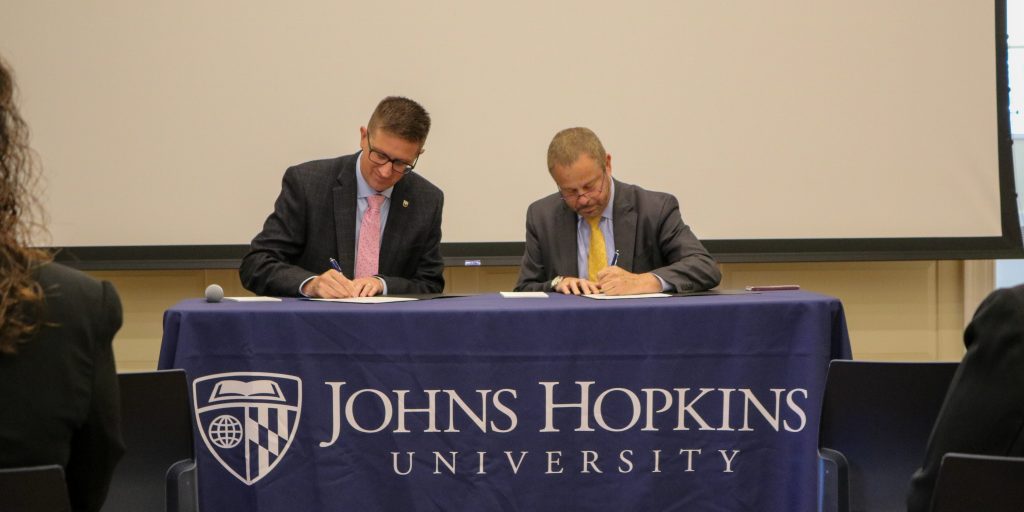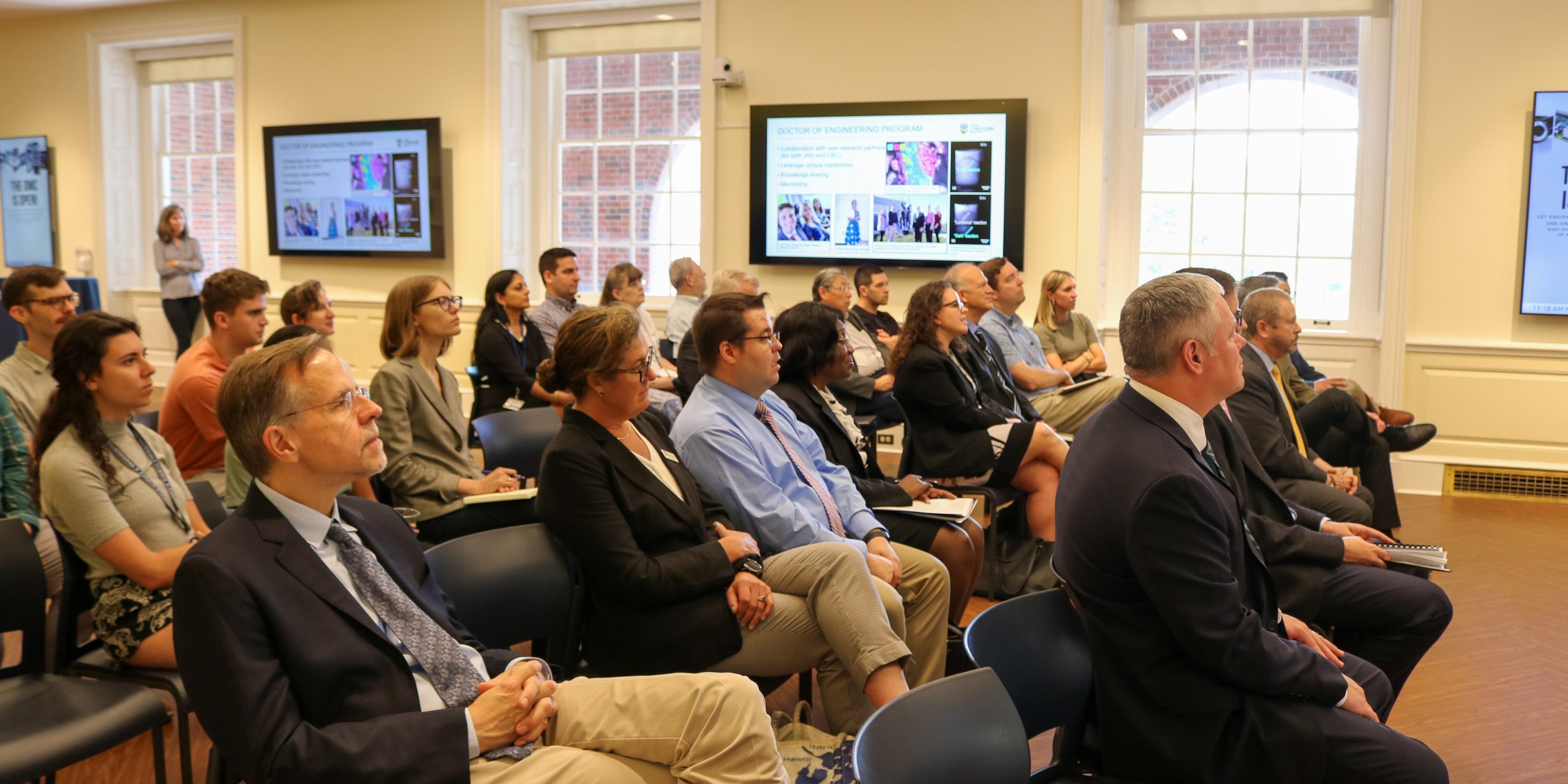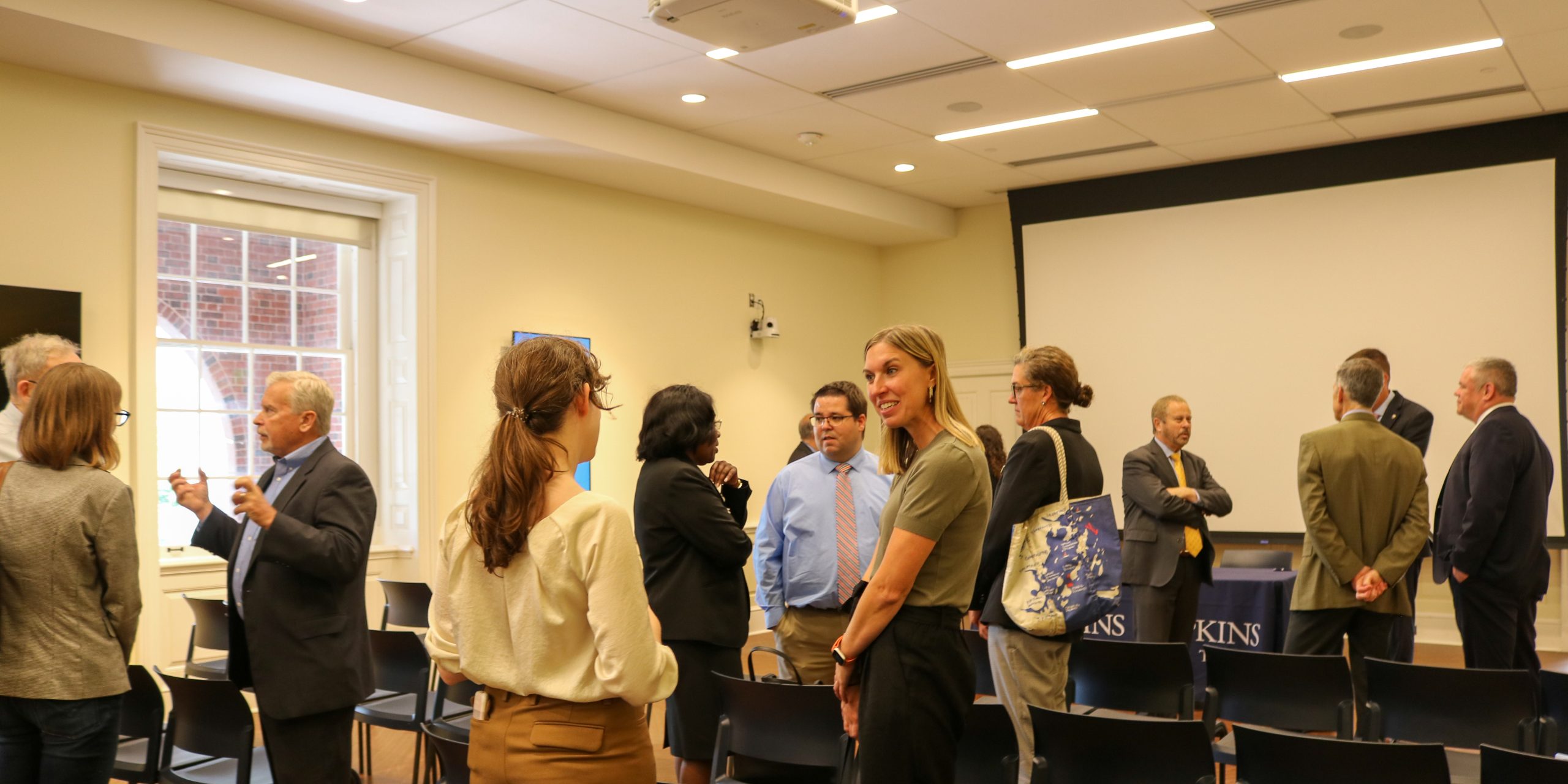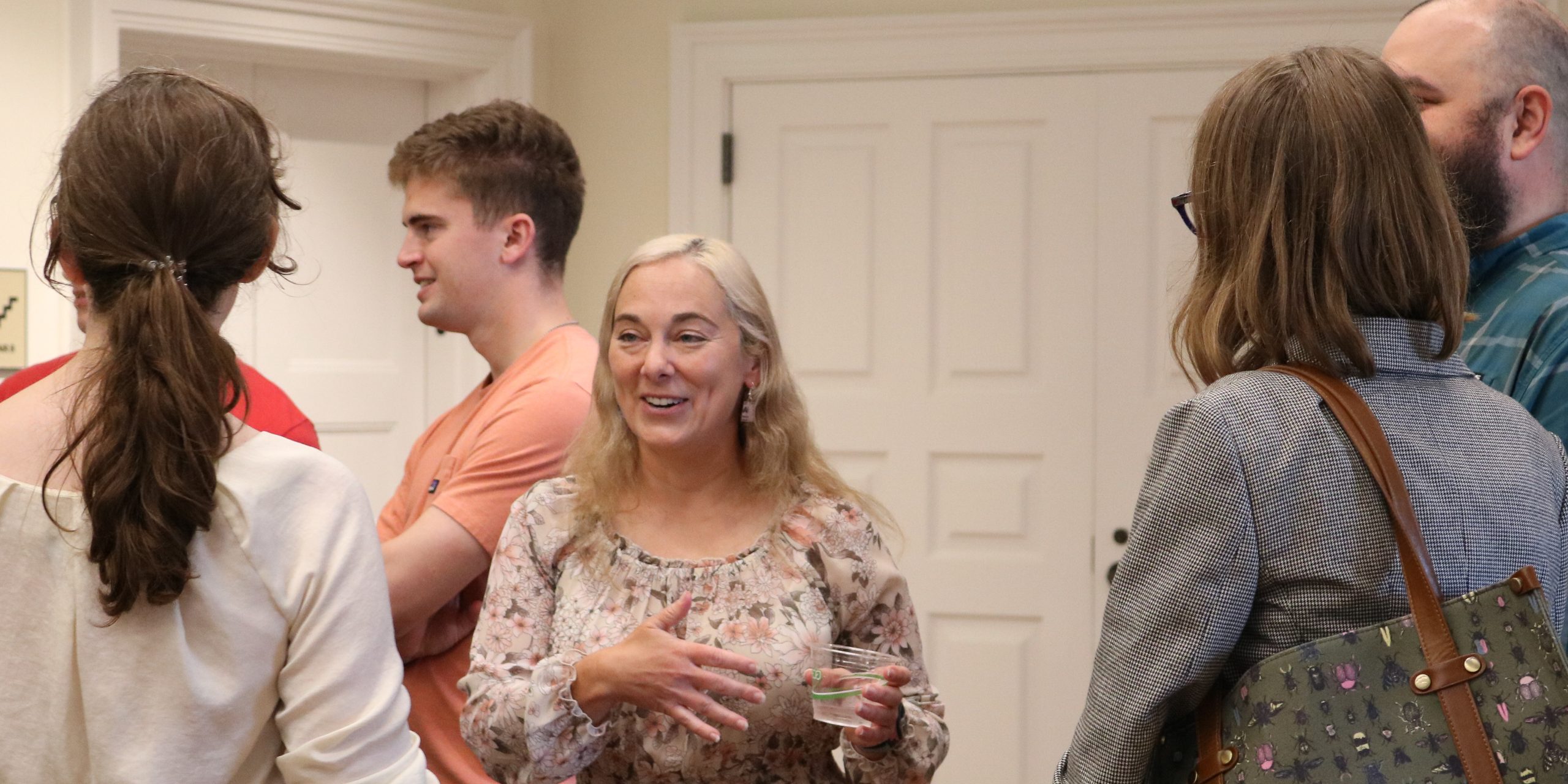Members of the Materials Science in Extreme Environments University Research Alliance (MSEE URA) have worked closely with the U.S. Army Combat Capabilities Development Command Chemical Biological Center (DEVCOM CBC) throughout the alliance’s three-year history. Many Johns Hopkins University students and MSEE participants have transitioned to positions in federal labs, and researchers like Amee Polk, a DEVCOM CBC employee, have graduated from the Johns Hopkins Doctor of Engineering program.
MSEE researchers and staff are continuing to foster these relationships, striving to bring the benefits of these collaborations to the university as a whole. In an effort to formalize the collaborative relationships that already exist between Johns Hopkins and DEVCOM CBC, both institutions have entered into an Education Partnership Agreement (EPA). This agreement recognizes the importance of education, research, and translational activities and will expand upon collaborative opportunities between both parties.
A signing ceremony was held on Monday, Sept. 11 to commemorate this agreement. The ceremony was attended by DEVCOM CBC employees and leadership, as well as faculty, students, and staff from Johns Hopkins.
Michael Bailey, the director of DEVCOM CBC, and Ed Schlesinger, Benjamin T. Rome Dean of the Johns Hopkins Whiting School of Engineering, were among those in attendance. The pair gave remarks on the nature and history of collaboration between DEVCOM CBC and the university before signing the Education Partnership Agreement.
Other speakers included Amee Polk and Tim Weihs, professor of materials science and engineering and director of MSEE. Andrew Proulx, MSEE’s program manager, facilitated the creation of this agreement.
“DEVCOM CBC has been a valuable partner for MSEE and HEMI. JHU’s proximity to CBC and the important, related research they conduct makes it an easy decision to collaborate” said Proulx. “We’ve previously had the opportunity to work with people from DEVCOM CBC on basic research projects, short courses, seminars, and more. This agreement encourages further collaboration.”




